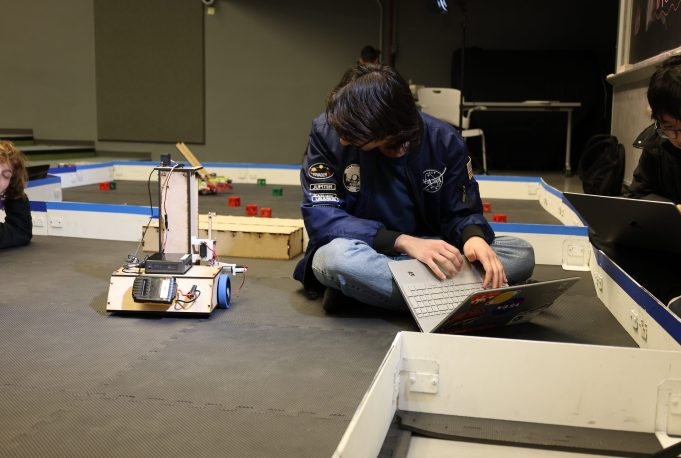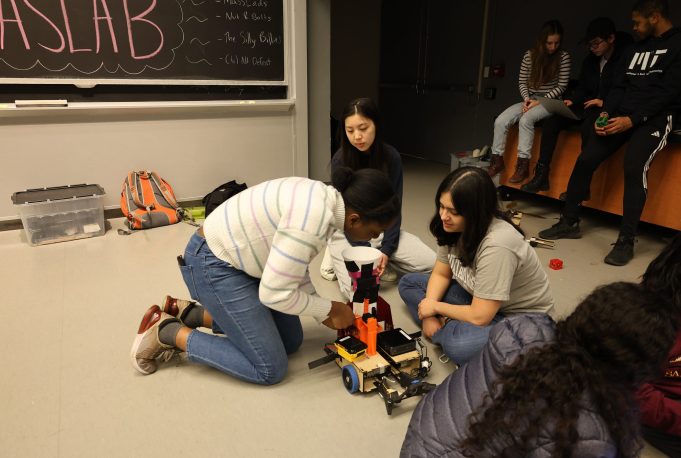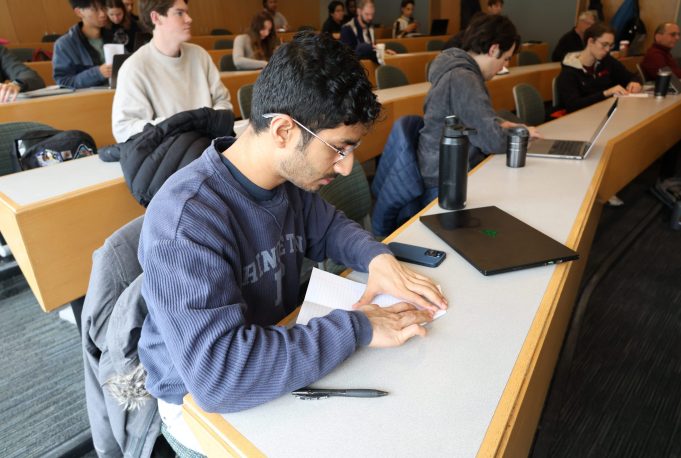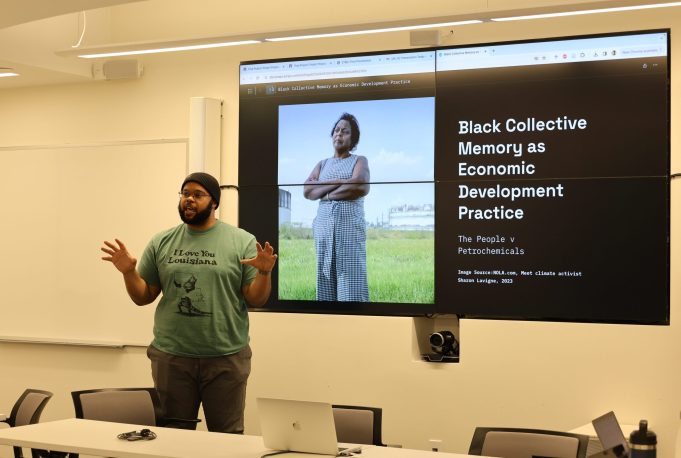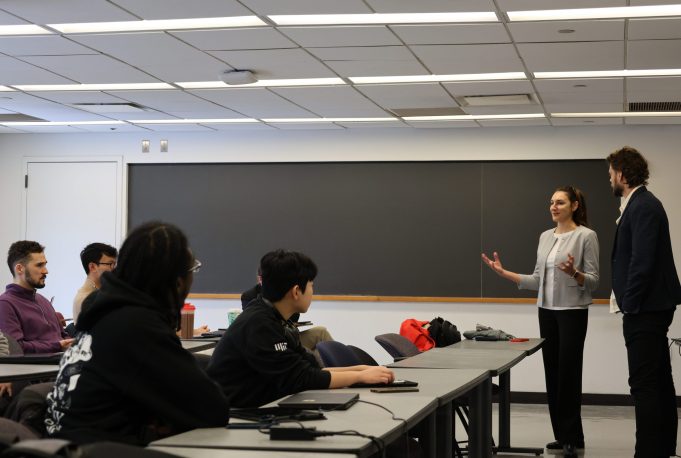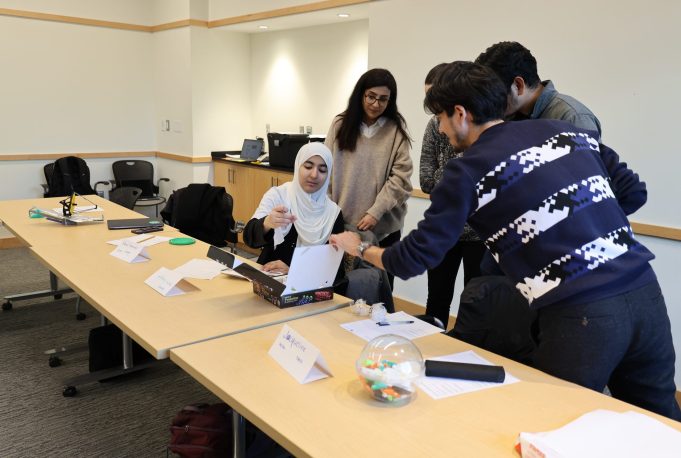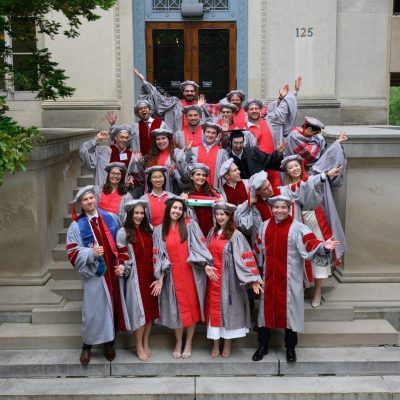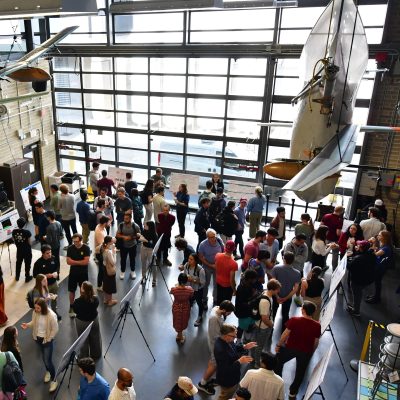AeroAstro Independent Activities Period 2024: Robots, pilots, XR, and more
From experimenting with extended reality, to building robots from scratch, members of the AeroAstro community spent MIT’s Independent Activities Period (IAP) this January exploring a variety of academic and non-academic courses for credit and for fun! Here are some highlights from the 2024 session.
MASLAB, Mobile Autonomous Systems Laboratory – Students spent this four-week IAP course building, coding, and wiring an autonomous robot from scratch to compete in the MASLAB robotics competition. Guided by MechE PhD student John Zhang with the support of AeroAstro’s Joseph Hobbs and Brian Minnick, interdisciplinary teams competed in a challenging cube-stacking competition. Each robot utilized computer visioning to stack cubes of alternating colors on a center platform – or knock stacks over for fewer points. “The Freshies” took first place in the overall competition.
“We are super proud of all the students. Building a robot from scratch in one month is not an easy task.” said Zhang. “MASLAB will be back next year and I hope with even more student participation – It’s the hardest hardware competition at MIT and unique in the experience it offers to students.”
Private Pilot Ground School – Alum Tina Prabha Srivastava and Prof. Philip Greenspun went over everything that an FAA-certificated Private pilot or Remote Pilot needs to know for the official pilot knowledge test. Trips, experiments, and visiting lecturers made this interactive experience essential for potential pilots.
“You won’t get to hear about experiences like the ones Tina and Philip have had just studying FAA handbooks,” says course participant Evgenii Vasilev.
Aeroverse: Aerospace Engineering in Extended Reality – Utilizing custom virtual reality simulations, students delved into an immersive educational experience centered around the Curiosity rover. Participants had the opportunity to navigate the simulated rover across Martian terrain and drilled for rock samples using its robotic arm. The course offered modules in aircraft design, flight simulation, autonomous path planning, and a range of other subjects, led by Profs. Olivier de Weck, Luca Carlone, and Prabhat Hajela.
Science, Technology and Environmental Justice – PhD student in the Space Enabled research group Ufuoma Ovienmhada and Dr. Christopher Rabe asked the central question: How can science and technology be employed in the study of – and fight against – environmental injustice? Course 16 PhD student Kristen Ammons explored how satellite data can be used to model mountaintop removal impacts in Appalachia, while others presented on environmental impacts of cloud computing on energy, water consumption, and waste and utilizing demographic data for economic development.
“The biggest takeaway from the course was that students are eager for community and classroom opportunities to study environmental injustice.” said Ovienmhada.
Topics in Fluids & Propulsion – Prof. Zachary Cordero introduced the physics and practice of metal additive manufacturing with work in the Aerospace Materials and Structures Laboratory (AMSL). Students engaged in the end-to-end process of additive manufacturing, from designing to printing and testing components as part of a design contest. The class incorporated hands-on projects as well as guest lecturers, including experts from EOS North America.
3D Modeling for Communication, Outreach, and Education – Brian Mernoff from the AeroAstro Communication Lab showed students innovative ways to convey their research through the creation of physical and tactile models. Participants explored what makes for an effective tactile model, how to design a model for different contexts, and how to optimize a model for 3D printing.

